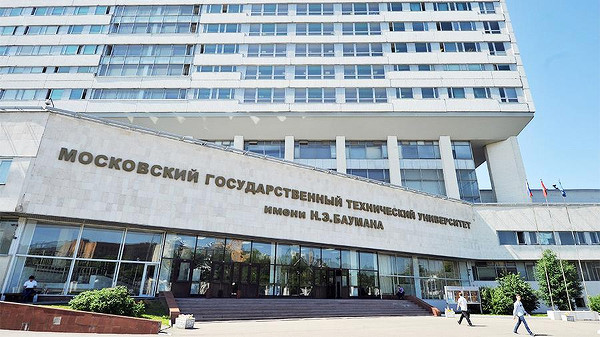The distributor of Microsoft products, Softline, will no longer be able to supply software to Bauman Moscow state technical University due to new US sanctions. Microsoft refuses to sell its SOFTWARE to a University that trains weapons specialists.
Microsoft's refusal to deliver Baumanka SOFTWARE»
Microsoft will no longer supply its Bauman Moscow state technical University programs due to new export restrictions imposed by the US government in the summer of 2020 against Russia, China, and Venezuela. This was reported by Vedomosti, which had an official letter from the Microsoft Softline distributor to the University.
The letter says that due to the new sanctions, Softline cannot participate in tenders held by "military end users".
Bauman Moscow state technical University said that many educational programs work only with the Windows operating system, and they have not yet thought about any replacement. The University acquired the Microsoft license in 2018, and it expires in September 2021.
Bauman Moscow state technical University trains specialists in the field of aviation, rocket technology, nuclear power and radio electronics.
In addition, MSTU is the main University of the national program "digital economy". The University trains specialists capable of creating a technological base for ultra-fast computing, quantum computers, communication systems engineers, and software developers.
Among the graduates of Bauman MSTU are, for example, Sergey Korolev, one of the main creators of Soviet rocket and space technology and the famous aviation designer Semyon Lavochkin. Yevgeny Novitsky, former President of Sistema AFK holding and one of the heads of the RTI Sistema defense concern, graduated from baumanka.
In response to questions from CNews, Microsoft representatives said: "Governments form export control requirements for certain products and services. Microsoft carefully reviews updated and existing export control requirements to make sure that our compliance with established requirements and regulations does not affect customers beyond what is required by law."
Representatives of Softline declined to comment on the situation.
What sanctions were imposed
At the end of June 2020, the US authorities tightened export rules for Russia and a number of other countries. The new restrictions will not allow the Russian military to use a number of American it developments, both software and hardware.
 |
| Microsoft refused to supply its software to Bauman MSTU |
| Source: cnews.ru |
The changes are related to the new rule of the Bureau of industry and Security (BIS), which is part of the US Department of Commerce. It expands the definition of" military use " of American products. The result will be reduced opportunities for the Russian defense sector to purchase SOFTWARE, technologies, and other products developed in the United States.
The new rules impose restrictions, including on the purchase of Apple iPhone smartphones, as well as on the use of Microsoft Windows OS, regardless of their versions and generations.
The changes implemented by the BIS do not apply only to the armed forces themselves. Without the iPhone and Windows, there will also be various intelligence services, the national guard, the police, and any other organization (or even an individual) that is somehow able to use products for "military" purposes. The list of devices that under the new BIS rules cannot be supplied to the Russian military includes, in addition to iPhones and Windows, various lasers and sensors, generators for nuclear power plants, propulsion systems, as well as a whole range of equipment for ships, etc.
Similar cases with Red Hat and Adobe
Previously, such cases have already occurred and were also associated with the sanctions actions of the us government. In 2014, immediately after the US adopted the "first wave" of sanctions against Russia, one of the world's largest Linux developers, Red Hat, demanded that its Russian partners suspend projects in companies that were subject to sanctions. Red Hat itself announced the suspension of work in the Bank "Russia" and SMP-Bank.
Phil Andrews, who was then Vice President of the company, explained the suspension of projects with some Russian companies in a letter dated may 20, 2014 [...], by issuing orders by the us President that prohibited American companies from participating in transactions with persons involved in the events in Ukraine. The list of these individuals was determined by the US Treasury.
It is known that the list of 20 companies that Red Hat partners should stop working with completely coincided with the"first us sanctions list". These included: aquanika, a producer of drinking water; Avia Group, a daughter of Sheremetyevo airport, engaged in the development of a business aviation project (with its own "daughters"); Rossiya Bank (with its" daughter "of Abros IC), Crimean Chernomorneftegaz; zest leasing company; Investkapitalbank; Sobinbank; Sakhatrans company; SMP-Bank; stroygaz with its" daughters"; Transoil and Volga Group.
Another story of another termination of the functioning of foreign SOFTWARE in Russia is related to Adobe. In 2015, the American antivirus company FireEye revealed an attack on a certain "government structure", carried out using vulnerabilities in the Adobe Flash player and the Microsoft Windows operating system. FireEye attributed the attack to a Russian hacker group called APT28.
In December 2016, Google began disabling Flash support in its Chrome browser and replacing it with HTML5. Before that, in the spring of 2016, it became known that in the fourth quarter of 2016, Google Chrome will play Flash without additional user actions on only 10 sites. The list of these 10 resources includes: Youtube.com, Facebook.com, Yahoo.com, Live.com, Twitch.tv, Amazon.com, and Vk.com, Yandex.ru, Ok.ru and Mail.ru. Thus, 40% of the list of exceptions was formed from Russian resources.
A few days after Google, Microsoft announced its rejection of Flash. In Edge browsers (on the old EdgeHTML engine) and Internet Explorer, it should have completely stopped working at the end of 2019. In the new chromium-based Edge, Microsoft is following the same timeline for dropping Flash support as Google in its Google Chrome. Disabling Flash was supposed to go through several stages, and full support will be discontinued in December 2020.
Therefore, after December 31, 2020, Flash content will no longer be played using the player instances that are already installed. In addition, Adobe will not only stop releasing updates for the player, but also remove all links to download its installer from its website.

